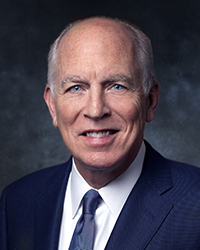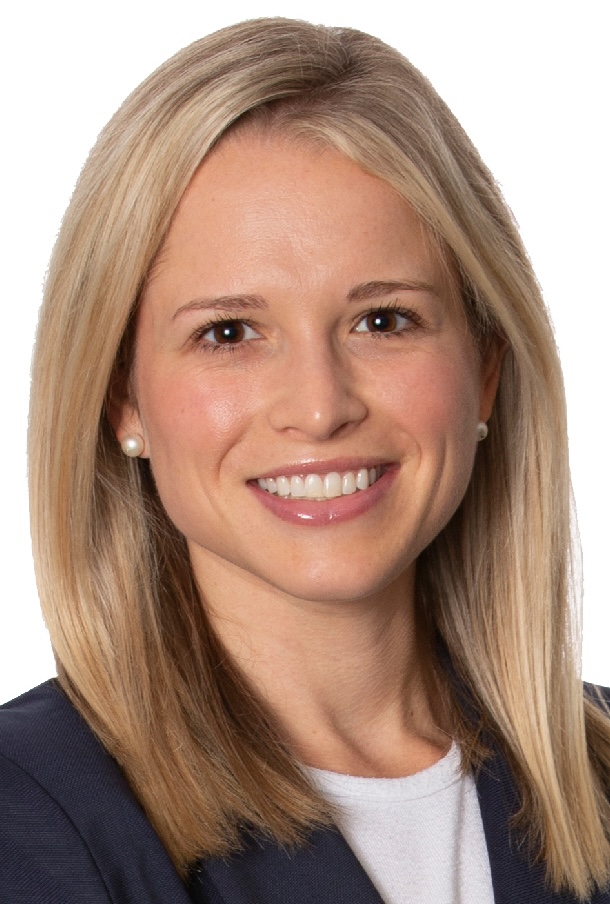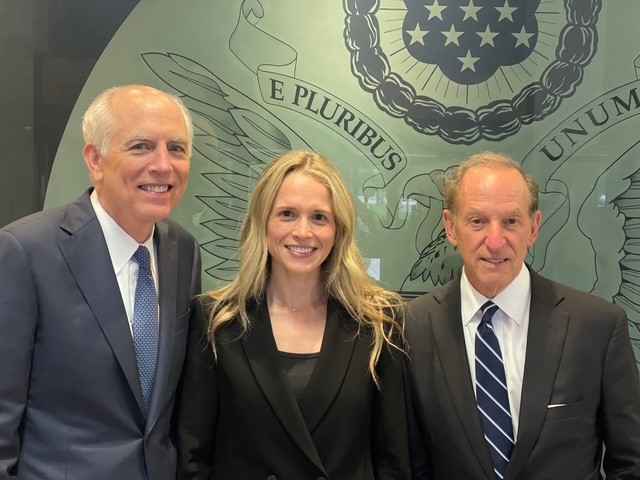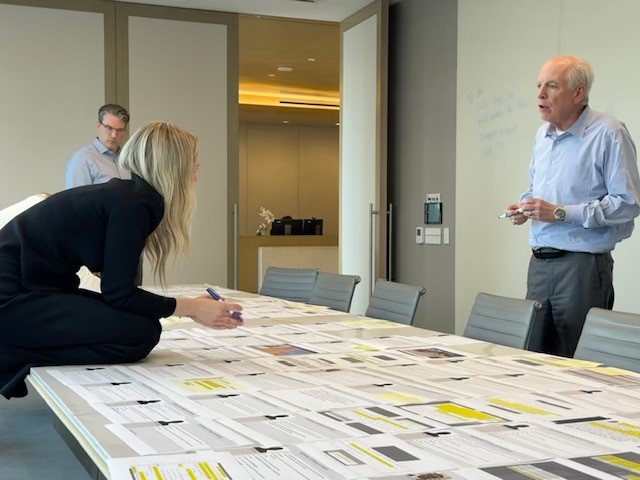At the very end of the series Mad Men, the yoga instructor encourages his class, which includes the show’s protagonist, Don Draper, with the following words: “A new day. New ideas. A new you.”
From the perspective of the defense team at least, that’s a fitting introduction to the retrial of United States v. Hamilton, which resulted last week in an acquittal on all charges of conspiracy to commit bribery and two substantive counts of bribery.

In the retrial, the government tried precisely the same case it tried four years ago. And why not? That case resulted in a conviction on three of four charges, which led to an eight-year prison sentence imposed by the district court.
It’s been said that the definition of insanity is doing the same thing repeatedly and expecting a different result. We felt little risk of falling victim to that, as neither of us had tried the case the first time around, so we came to this with fresh eyes.
Still, we knew that, to have a chance at a different result, we had to do things differently. And not just different for the sake of difference. We needed, somehow, to try the case in a meaningfully different way. We had to find a way to confront allegations and evidence that The Dallas Morning News called “damning.”

And damning it was. In 2018, our client, Ruel Hamilton, had been captured on hidden video and audio recordings writing a $7,000 check to a sitting city council member. In 2015, he had been recorded discussing his real estate business — for hours — with another city council member and talking about various payments to her.
We couldn’t ignore the “bad” evidence, so we didn’t bother trying. It, quite literally, spoke for itself. Instead, we had to build on what worked the first time, and in that regard, we were fortunate to have legendary defense attorney Abbe Lowell back on the team as well as new team member, former U.S. Attorney for the Eastern District of Texas Damien Diggs. But we also had to unearth new facts not presented to the first jury that would cast those recordings in a different light. So, we developed two new approaches.
First, we set out to learn more about the May 2015 Dallas City Council election, information that the government had ignored. The government alleged that Hamilton’s payments to Dallas City Council member Carolyn Davis included campaign contributions to city council candidates Tiffinni Young and Carolyn Arnold, who were running in the 2015 election for seats held by Davis and council member Dwaine Caraway, respectively. The government also pointed to recordings indicating that Hamilton had given cash to Davis on occasion in the months leading up to this election.
We researched the 2015 election and determined that four incumbents in neighboring districts in southern Dallas (Districts 3, 4, 7 and 8) were “terming” out that year, having served the maximum of four consecutive two-year terms, leaving a vacuum of leadership in this part of the city.
We elicited testimony from former council members about their recollection of this particular election, including testimony from Caraway and former council member Philip Kingston, and discovered it was viewed as “unprecedented,” causing there to be an unusual amount of energy and money dedicated to it.
Hamilton, who had been active in southern Dallas politics for many years, had contributed to candidates in all four districts during this 2015 campaign cycle, yet the government focused only on selective contributions to Young and Arnold because the timing of those payments supported their theory of the case — namely, that the payments were made within a month of a city council vote that impacted Hamilton’s low-income tax credit application.

We presented evidence that Hamilton had also made contributions to two other candidates in these neighboring districts and identified recorded phone calls between Hamilton and Davis discussing their support for all four candidates to whom Hamilton ultimately made contributions.
We also learned that campaign workers in southern Dallas are more commonly paid in cash than in other parts of the city and that fundraising begins early for important races like these.
This evidence provided an essential counternarrative to the government’s theory that certain cherry-picked contributions by Hamilton, along with cash provided for election workers, were bribe payments designed to somehow benefit Davis. In reality, Hamilton was actively contributing to an election viewed as “unprecedented.”
Next, with respect to the $7,000 check, we needed to better understand the point of view of the recipient, former council member Caraway, who had pled guilty to an unrelated bribery scheme and, at the time he received the check from our client, was working for the government to ensnare others in an attempt to reduce his sentence.
In the first trial, Caraway was still in prison and hoping to reduce his sentence even further by helping the government convict our client. In the retrial, he had done all his time, and the government held no power over him.
We met with him and his counsel before trial. We have found that, in many cases, defense counsel are intimidated from conducting such informal “discovery” either because they don’t think it will prove fruitful or they fear that somehow their efforts will be mischaracterized by the government in trial. We have found, in multiple cases, that this kind of outreach can be case-altering.

Here, it certainly was. Although in the first trial, Caraway had grudgingly characterized the payment as corrupt, he was unwilling to do so in the second trial. By approaching him as what amounted to a “friendly witness,” he completely supported our argument that the payment was far from corrupt but was instead an act of friendship for a person who was struggling to keep his ailing mother living in her own home.
Undoubtedly, the passage of time and the completion of his prison sentence allowed Caraway to embrace this truth in a way that he had not done previously.
It’s possible neither of these “new ideas” would have meant much if we had an unfavorable jury. The district court gave us extended time, by federal court standards anyway, for attorney voir dire. We used our 45 minutes as aggressively as we could. Almost right out of the box, we asked what is truly the key question in any defense voir dire in a criminal case: “Right now, who believes that our client, Mr. Hamilton, wouldn’t be sitting where he is if he hadn’t done something wrong?”
One person immediately raised his hand. Then another. And another. Upwards of a dozen people eventually identified themselves as having this preexisting belief — ultimately, every one of them was excused for cause. With one question, we had eliminated from the panel our most dangerous jurors.
In the late afternoon of June 12, it truly was a new day for our client and his family. A six-year ordeal covering indictment, the first trial, a conviction, imposition of an eight-year sentence, reversal of the conviction by the Fifth Circuit and a second trial finally came to an end.
So too did the storied judicial career of Senior U.S. District Judge Barbara Lynn, who, presiding over her last trial after 25 years on the bench, read out the words “not guilty” three times and then polled all 12 jurors to confirm that verdict.
Tears of jubilation and relief poured out of our client and his family. In the hallway, those tears turned to cheers. A new day, indeed.
Tom Melsheimer is co-chair of Winston and Strawn’s global litigation department, and Alex Wolens is an associate at the firm. Both lawyers work in the firm’s Dallas office.
